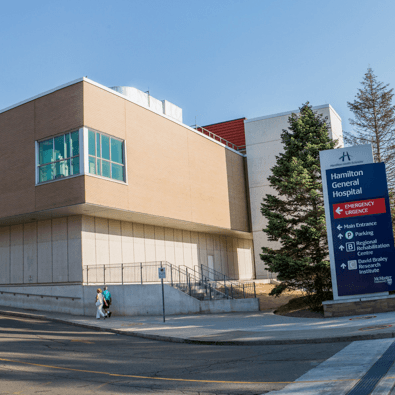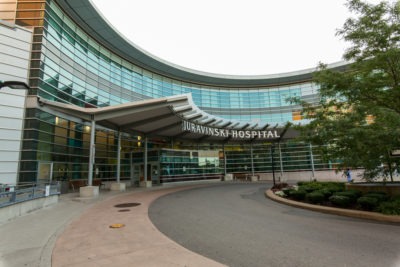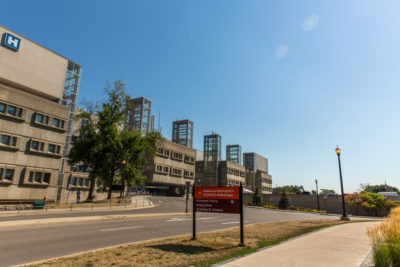Endoscopy examines the inside of the body to diagnose, evaluate, and treat conditions of the stomach, bowel, liver, pancreas and respiratory tract. Our program is comprised of four divisions: adult gastroenterology, general and colorectal surgery, respirology, and pediatric gastroenterology.
Select your test or procedure from the list below to learn more.
For Healthcare Providers
Referral Forms
Our referral forms are updated regularly. Please do not save the links. Instead, check back for the most recent form.
Barrett’s – Current version November 2019
Colonoscopy – Current version March 2020
Complex Polyps Adjudication Tier 2: Current version January 2020
Diagnostic Assessment Program (DAP) Colorectal Cancer: Current version May 2018
ERCP Procedure Transfer Record: Current version December 2019
Gastroenterology – Current version May 2018
GI Motility – Current version May 2021
Wireless Capsule Endoscopy (WCE), Digestive Disease Program – Current version May 2018
Diagnostic Assessment Pathway (DAP) for Colorectal Cancer
The DAP program is an initiative with Cancer Care Ontario to help navigate patients who have concerning lesions of their colon. The nurse will arrange diagnostic test and follow up with a surgeon in a timely manner.
Tier 2 Polyp Adjudication
The tier2 polyp adjudication is a panel of expert physicians who specialize in EMR and colorectal cancer treatments. The interdisciplinary team reviews cases weekly and decides as a group the best course of treatment.
SEE Course
MUMC is one of the first training centers certified by the Canadian Association of Gastroenterology (CAG) for conducting the Skills Enhancement for Endoscopy (SEE™) Program. Two accredited programs are offered at this site: (1) the Colonoscopy Skills Improvement (CSI) program, which is designed to provide up-skilling and improvement of colonoscopy skills for all practicing endoscopists; (2) Train-the Endoscopy-Trainer (TET), which is designed to improve teaching skills and enhance competence needed to teach colonoscopy for those teaching colonoscopy. We currently offer twelve courses a year. Visit the website for more information.
The Endoscopy Global Rating Scale (GRS)
Hamilton Health Sciences was one of the first in Canada to adapt the GRS tool. The emphasis is on using quality indicators in endoscopy to provide safe procedures. HHS has been recognized on a yearly basis for our achievements in quality improvement.
Pediatric Gastroenterology (under 18)
Pediatric gastroenterology is a full range of specialized pediatric gastrointestinal procedures, including endoscopy, colonoscopy, and motility studies. The pediatric service treats inflammatory bowel disease, acute and chronic gastrointestinal disease, and liver disease in childhood.
Resources
Pediatric bowel prep for colonoscopy
Colonoscopy for pediatrics
Upper endoscopy for pediatrics
Going home after your endoscopy
Going home after your esophageal dilatation
Bronchoscopy
Bronchoscopy is a procedure that allows doctors to examine your lungs and air passages. A thin tube is passed down your mouth or nose into your lungs. Common reasons for this test is lung infections, persistent cough, abnormal chest x-ray, and to rule out lung cancers.
Resources
Colonoscopy
Colonoscopy is an exam used to detect changes or abnormalities in the large bowel and rectum. Common reasons for colonoscopy are bleeding, inflammatory bowel disease (IBD) such as Crohn’s disease or colitis, a family history of bowel cancer, colon cancer diagnosis and positive FIT testing.
FIT Testing – Colorectal Cancer Screening
Fecal Immunochemical Test (FIT) is for average risk patients between the ages of 50-74 years. It is a simple test done at home that is safe and painless. FIT testing determines if there is tiny drops of blood in your stool sample. It is used to help determine if you are at risk for colorectal cancer or precancerous polyps. Ontario has adopted this program for population based screening. If you have a positive FIT test your primary physician will make a referral for a colonoscopy. A colonoscopy will be arranged for you within 56 days at the hospital. It is important to get screened as colorectal cancer is curable 9 out of 10 times when detected early.
Resources
Preparing for a colonscopy – 4 Litre Bowel Prep – (PEG Polyethylene Glycol)
Preparing for a colonoscopy- Sodium Picosulfate Bowel Prep
Endoscopic Mucosal Resection (EMR)
EMR is a procedure that removes early stage cancers and precancerous growths from the lining of the digestive tract. This procedure is used to remove lesions that are large, or could contain abnormal cells including cancer.
Endoscopic Retrograde Cholangiopancreatography (ERCP)
ERCP is a procedure that combines endoscopy with x-ray to view the pancreatic and bile ducts. Dye is used to visualize the ducts and allow doctors to diagnose and treat patients who have blockage of the bile duct, gallstones, cancer, and strictures.
Endoscopic Ultrasound (EUS)
EUS is a procedure in which endoscopy is combined with ultrasound to obtain images of the chest, abdomen and colon. This test can help diagnosis diseases of the pancreas, bile duct, gall bladder and cancer. This test is often done to obtain more information for your doctors.
Gastroscopy Upper GI (UGI) including Endoscopy
Gastroscopy/Endoscopy is an exam where a thin flexible tube is passed through your mouth to your stomach and small intestine. Common reasons for this test are bleeding, GERD (reflux), gastritis, ulcers, difficulty swallowing and cancer.
Resources
Preparing for your endoscopy
Preparing for your upper GI endoscopy
Picking up your family/friend after their procedure at Juravinski Hospital
Preparing for upper GI endoscopy and colonoscopy – 4 Litre Bowel Prep – PEG Polyethylene Glycol
Preparing for upper GI endoscopy and colonoscopy – Sodium Picosulfate Bowel Prep
Going home after your upper GI endoscopy
Motility
24 hr. PH Monitoring is a motility test that measures the acidity levels in your esophagus.
Esophageal Manometry is a motility test that shows whether your esophagus is working properly.
Anorectal Manometry is a motility test that measures contractility in the anus and rectum.
Biofeedback is a motility treatment to help with bowel incontinence or constipation, and retrains your bowel.
Wireless Capsule is a procedure that uses a tiny wireless camera to take pictures of your small bowel to look for occult bleeding.
Resources
Radiofrequency Ablation (RFA) for Barrett's Esophagus
RFA for Barrett’s Esophagus is a procedure that uses heat energy combined with an endoscopy. This procedure is used to destroy pre-cancerous cells within the esophagus. The heat is precise to the abnormal area and does not damage healthy tissue.
Sigmoidoscopy
Sigmoidoscopy is an exam used to examine the lower portion of your colon from rectum to splenic flexure. Common reasons for this test include bright red blood from rectum or average risk screening.




